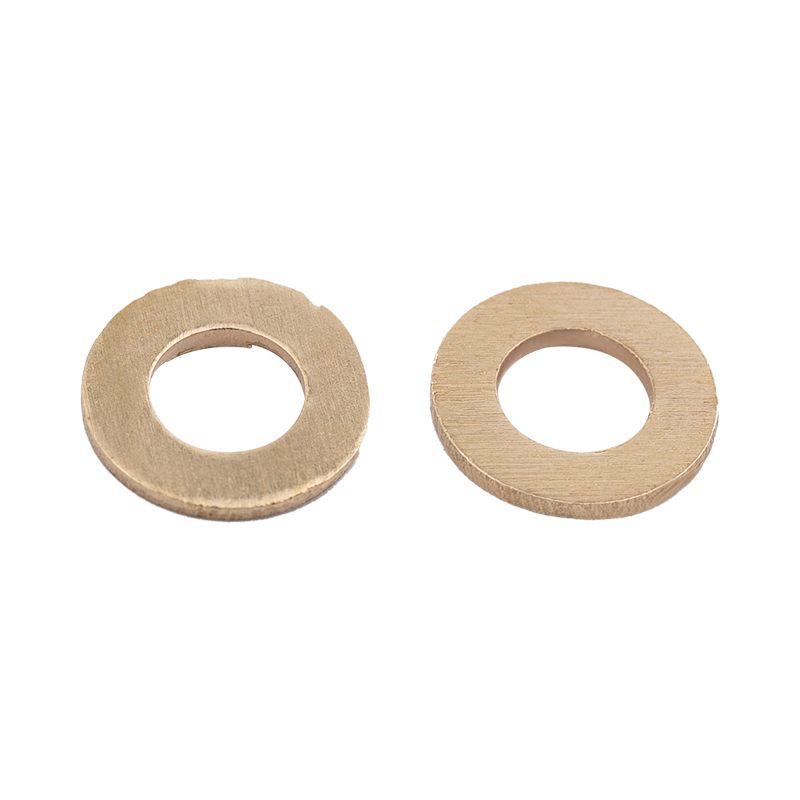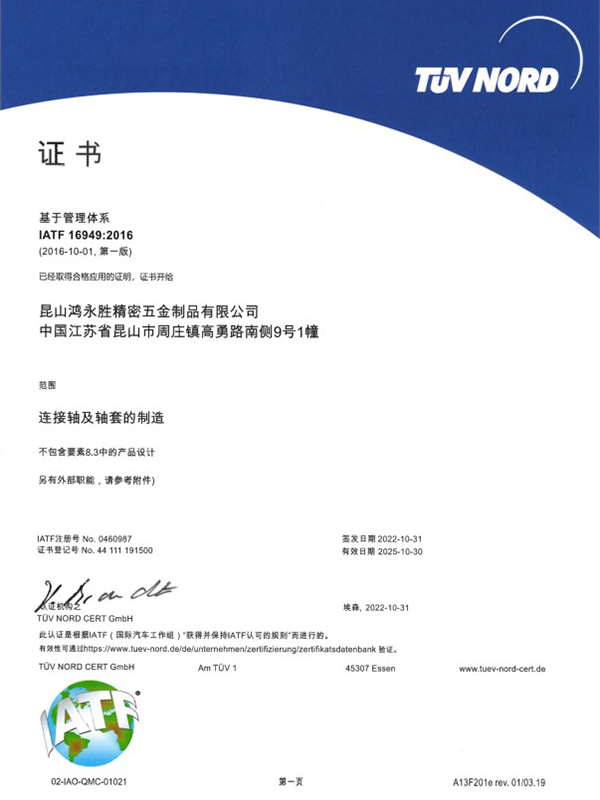Definition and Basic Concept of Hexagonal Rivet Nuts Hexagonal rivet nuts are internally threaded fasteners designed to create strong, load-bearing threads in thin or hollow materials where convention...
READ MOREThe company has obtained two quality system management certificates of ISO9001:2015 and IATF16949:2016.
At present, the company has been for Japan, Sweden, the United States, Singapore, Malaysia, Hong Kong and the Pearl River Delta and many other customers to provide services, now the main customers are: Japan Sharp (SHARP), Japan SMC, Japan Panasonic (Panasonic), the Swedish automobile VOVOL, etc., all the fixed assets investment of more than 30 million dollars, welcome friends from all walks of life to the factory to visit, study, consulting and come! We welcome friends from all walks of life to visit our factory, investigate, consult and come to us for sample processing.
We are looking forward to establishing a good business partnership with you with mutual trust and reciprocity!
-
-
Understanding Sealing Requirements in Hydraulic and Pneumatic Systems Hydraulic and pneumatic connections operate under internal pressure, media flow, and frequent pressure fluctuations. In these syst...
READ MORE -
Introduction to Screw Hardware Screw hardware is a fundamental component in construction, manufacturing, and DIY projects. It plays a critical role in joining materials securely, providing structural ...
READ MORE -
Introduction to Round Head Cross Bolts Round head cross bolts are a type of fastener widely used in construction, machinery, and industrial applications. They feature a rounded head with a cross slot ...
READ MORE
What are the applications of flat washers and the advantages they offer?
In the vast world of hardware and fasteners, there's one humble component that often goes unnoticed – the flat washer. Despite its small size and unassuming appearance, the flat washer plays a crucial role in ensuring the stability, efficiency, and longevity of various structures. In this article, we will delve into the world of flat washers, exploring their different types, applications, and the benefits they provide. So, let's give credit where credit is due and shed some light on this unsung hero!
Flat washers come in a variety of shapes and materials, each designed for specific purposes. The most common types include plain washers, which are flat and circular with a hole in the center, and spring washers, which have a slight curvature to provide tension. Other variations include split washers, beveled washers, and fender washers. The choice of washer depends on the specific application and the desired level of support, load distribution, or vibration resistance.
Flat washers find their place in numerous industries and applications. From construction and automotive to plumbing and electronics, they provide essential benefits. Firstly, flat washers distribute the load evenly, preventing damage to the surface or fastener when tightened. They also act as a buffer, reducing friction and allowing for smooth movement. Additionally, washers help to prevent loosening due to vibrations, ensuring the stability and integrity of the structure. By maintaining the proper tension, flat washers increase the lifespan of fasteners and minimize the need for repairs or replacements.
To maximize the effectiveness of flat washers, it's important to choose the right size, material, and type for the specific application. For example, stainless steel washers are ideal for outdoor use due to their corrosion resistance. When selecting a washer, consider the diameter, thickness, and the size of the hole. It's also crucial to use washers correctly – place them between the fastener and the surface, ensuring a tight fit without over-tightening, which could damage the washer or the materials being fastened.
While often overlooked, flat washers are the unsung heroes of the hardware world. Their simple yet crucial role in load distribution, stability, and prevention of damage cannot be underestimated. By understanding the different types, applications, and benefits of flat washers, you can make informed choices when it comes to your own DIY projects or professional endeavors. So, next time you tighten a bolt or screw, remember the trusty flat washer silently working behind the scenes to keep everything secure!



 русский
русский Español
Español



